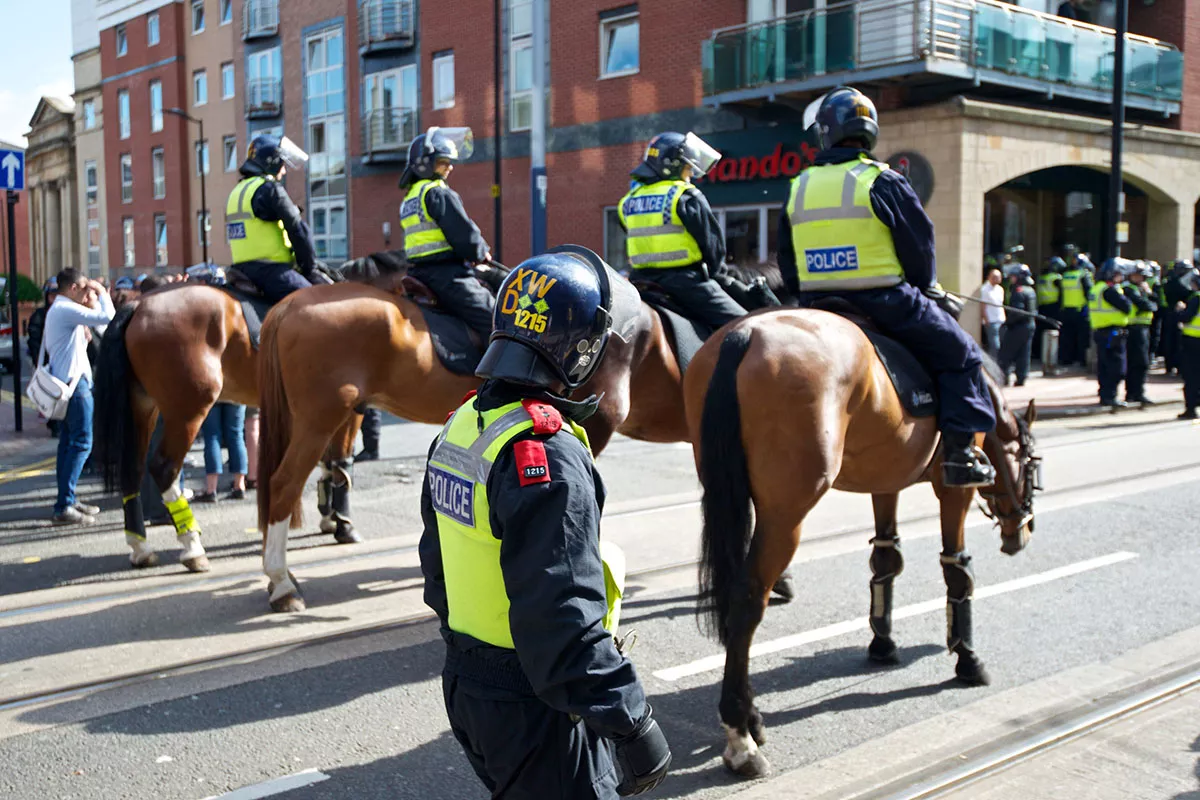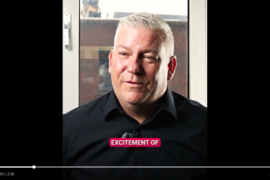If I was to write a book inspired by the distressing events at the 2023 Grand National at Aintree, the working title would be something like, “Animal rights activism and the art of protest.”
Is there not a cause? Of course there is a cause, a very noble cause; the welfare of animals.
There are also strategies for advancing the cause and highlighting the plight of all animals under the dominion of humans, not just animals in sport.
Both cause and strategy came under intense scrutiny at the just-ended Grand National.
Heroes or villains?
I have the utmost respect for animal rights advocates who have made it their sworn duty to keep the world sensitized to the welfare of animals.
That said, the question must be asked; Did the protests at the Grand National advance the cause for animal rights?
A protester was quoted by The Guardian saying: “I know everyone coming to Aintree to view the races today would say they love the horses. However, the suffering experienced by them should shock us all. That’s why I’ve decided to put my body between those horses and death on the racecourse, rather than gamble with their lives.”
The rebuttal was swift and dripping with contempt for, in the eyes of other stakeholders, extreme ignorance about the welfare of race horses.
Trainer Sandy Thomson put the blame for the fatal fall of his horse Hill Sixteen squarely on the protesters’ doorstep. Thomson’s thesis is that the delays occasioned by the protests left the horses restless and prone to accidents.
“It was all caused by these so-called animal lovers who are actually ignorant and have absolutely no idea about the welfare of horses,” Thompson fumed.
It is a sad day for animal rights activism when a fatality is partially blamed on the actions of those who claim to have the welfare of animals at heart.
ITV pundit and horse racing legend Sir AP McCoy was equally scathing of the protesters, labelling them “attention seekers” who “don’t have any understanding of horses or how they are cared for.”
Activism and protest strategy
Putting human bodies between horses and death on the racecourse, literally, sounds heroic and foolish in equal measure.
I don’t know why the protesters’ claims of self-sacrifice evoke memories of the ‘Tank Man’ who stood in the path of a column of military tanks in an act of courage and deviance during the Tiananmen Square protests. They really shouldn’t because the actions of the Grand National protesters bear no serious comparison, not even remotely, to the protests in Beijing in June 1989.
There is a fine line between courage and foolish bravery, a thin line between giving practical courageous expression to one’s convictions and grandstanding.
Far too many fingers are being pointed at the protesters for sullying and undermining a good cause with their ill-conceived “attention-seeking” antics.
With around 70 000 in attendance at Aintree and millions watching on TV around the globe, the Grand National and horse racing in general retain global appeal. It is therefore imperative for animal rights activists to choose their protest strategies carefully. The causes advocated for by a few will do well to adopt strategies that do not alienate the majority or portray the rest of the world as criminal accomplices in the abuse of animals.
Causes are supposed to attract the sympathies of those who might be indifferent or sitting on the fence, not antagonise them. It is debatable whether the protests at Aintree achieved that basic aim.
Friends, associates, and family
Some may call social media users “keyboard warriors,” but others see them as a valuable resource for airing grievances and rallying support for good causes.
I checked Facebook during the Grand National and saw some friends bragging about the prizes they’d won and others griping about the high cost of alcohol and food.
However, I heard legitimate concerns and sadness about by the horses’ deaths but little fury about the demonstrators themselves.
Seeing horses injured isn’t enjoyment thus precautions need to be taken before the next Grand National.
The high-profile cases of Hill Sixteen, Dark Raven, and Envoye Special prove that no horse’s life should be risked for entertainment.
The backlash
There has been considerably more anger directed at “ignorant” animal rights activists than at the “greedy” horse racing industry.
That is in itself very instructive. Activists must be careful not to cede the moral high ground to those they seek to convince to abandon their ways and see the light.
It is a sad day in the history of activism when activists become the centre of attention and eclipse the cause they claim to be championing. It’s a shame that a noble cause was sullied by such a grotesque protest strategy.
There will be no reverence nor immortality for the Aintree Grand National grandstanders, just contempt and notoriety. No bouquets, just brickbats.
The protesters forgot one basic tenet of protest strategy – a cause is enhanced or undermined by the conduct of its sponsors.
What I witnessed at the Grand National was not the best advert for animal rights activism. A line was crossed and I hope those who breached it will reflect on their actions.
The activists will probably point to three fatalities as vindication of their protest, oblivious to their potential contribution to the tragedies. I hope the righteousness of the cause does not blind them to the shortcomings of their choice of protest action on the day.
Sadly, the enduring memory of the latest installment of the Grand National will no longer be that Corach Rambler won it, but how activists did the cause of animal welfare gross disservice.
The sight of protesters scaling ladders to get access onto the track was upsetting. It looked like the stuff of excitable bandwagoners, not bona fide animal rights activists.
What I saw were anarchist disruptors trying to browbeat the industry into submission, a rabid mob determined to impose their will on the majority.
I doubt this is the image well-meaning animal activists want to project to the whole world.
At best the protest was a hollow victory for Animals Rising. Their cause got considerable publicity, but sympathy?
Reforms, reforms, reforms!
It’s refreshing to see The Royal Society for the Prevention of Cruelty to Animals (RSPCA) refusing to be caught up in the emotion and hysteria of the mayhem at Aintree.
Thankfully the RSPCA continues to speak with a sober tongue reiterating the need for continuous reforms and dialogue between stakeholders.
The size of the field and use of the whip, among others, remain very contentious issues warranting urgent attention.
“One of the things we see part at the Grand National is a big field, so lots of horses running together, so that causes issues when horses fall and can get in the way of other horses and cause accidents in that way,” Emma Slawinski, Director of Policy, Prevention and Campaigns at the RSPCA told the Today programme.
On the use of the whip Slawinski added: “We know that actually causes more accidents and makes accidents more likely, injuries more likely so we would like to see that reform happen as well.”
The arguments for and against an outright ban on horse racing continue to rage, as they should. It’s important for the horse racing industry and animal rights activists to keep the dialogue about reforms alive.
There can be no justification for abandoning constructive engagement in favour of violent confrontation.






